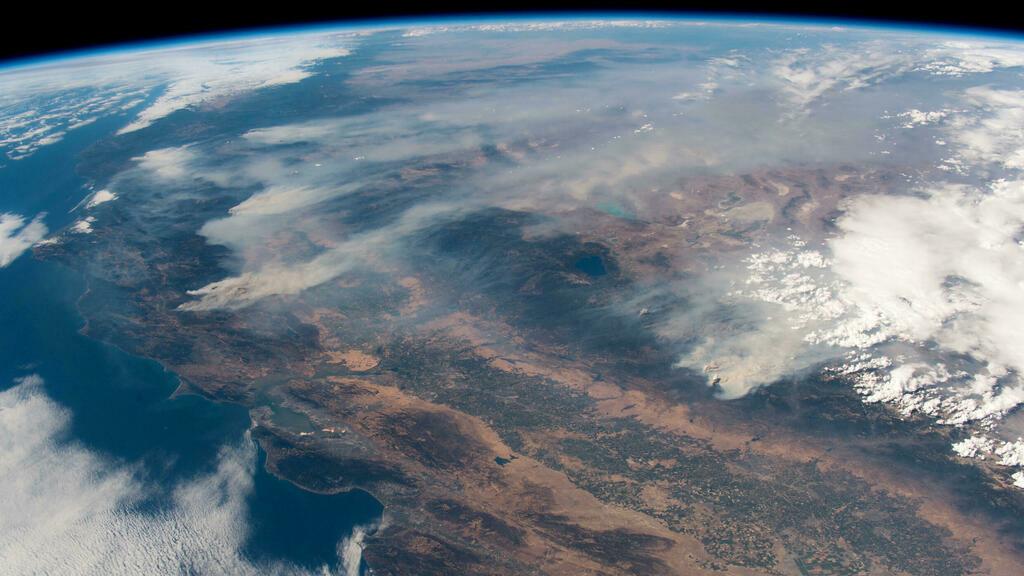Climate change poses serious risks to mental health and well-being, concludes a new WHO policy brief, launched on Friday at the Stockholm+50 conference.
The conference commemorates the 50th anniversary of the UN Conference in Stockholm on the Human Environment and recognizes the importance of environmental determinants for both physical and mental health. The conference was the the first-ever United Nations Conference on the Human Environment.
With the world facing a triple planetary crisis of climate change, biodiversity loss and pollution, governments, civil society, young people and the private sector gathered again in Stockholm for an international meeting – Stockholm+50 – to spur urgent action for a healthy planet for the prosperity of all.
The WHO policy brief is therefore urging countries to include mental health support in their response to the climate crisis. The findings in the brief concur with a recent report by the Intergovernmental Panel on Climate Change (IPCC), published in February this year.
The IPPC revealed that rapidly increasing climate change poses a rising threat to mental health and psychosocial well-being; from emotional distress to anxiety, depression, grief, and suicidal behaviour.
WHO defines mental health as “a state of well-being in which every individual realizes his or her own potential, can cope with the stresses of life, can work productively and fruitfully and is able to make a contribution to her or his community”.
“The impacts of climate change are increasingly part of our daily lives, and there is very little dedicated mental health support available for people and communities dealing with climate-related hazards and long-term risk,” said Dr Maria Neira, WHO Director, Department of Environment, Climate Change and Health.
From pandemic to climate change
As previously reported, the COVID-19 pandemic took a heavy toll on mental health and prompted the world health organisation to launch a Pan-European Mental Health Coalition in September 2021 in partnership with the European Commission. It aims at transforming mental health services and promoting mental health and preventing mental ill health across the lifetime.
In the WHO European Region alone, more than 150 million people live with a mental health condition, and only one in three people living with depression receive the care they need. Lockdowns, school closures, isolation and joblessness caused by the pandemic made only things worse.
On a global level, the impact of climate change and extreme weather conditions on mental health risks becoming much worse. Climate change results in both acute hazards, such as hurricanes, floods and wildfires, and slower-onset threats, such as ecosystem changes, food and water insecurity and loss of place and culture.
Globally, there are nearly 1 billion people living with mental health conditions, yet in low- and middle-income countries, 3 out 4 do not have access to needed services. A 2021 WHO survey of 95 countries found that only 9 have thus far included mental health and psychosocial support in their national health and climate change plans.
The mental health impacts of climate change are unequally distributed with certain groups disproportionately affected depending on factors such as socioeconomic status, gender and age. Certain groups are disproportionately at risk from climate change-related hazards, including people with pre-existing mental health conditions.
Different pathways to mental health
The pathways by which climate change can affect people’s mental health and psychosocial well-being are multiple, according to the policy brief. Climate change affects mental health by causing extreme weather conditions that make the world unhabitable and destroy the possibility of people making a living as they used to do.
Damage to the environment results in air pollution, Insufficient water quantity, quality, food insecurity and ecological changes. Socioeconomically, climate change can result in loss of livelihood, property loss or damage, loss of autonomy and control, and loss of personal important places.
Changes in the physical environment and disruption to peoples’ home environments can lead to emotional distress and disorientation. If societies fall apart because of climate change, it deepens inequalities, and can lead to violence and forced migration. Conflicts with neighbouring countries about scarce natural resources can escalate to war.
Individuals and communities may experience many intense emotions in the face of a changing climate, including sadness, fear, despair, helplessness and grief. Various terms, such as climate change anxiety, have emerged to describe these responses, particularly among youth. Conversely, actively coping with the situation through climate action can result in increased well-being.
The policy brief did not look at predictions of future birth rates and how it would impact mental health. Worries about climate change and feelings of helplessness, fear, and grief might affect decisions to give birth to children when the future and very survival of a healthy planet is uncertain.
The new WHO policy brief recommends five important approaches for governments to address the mental health impacts of climate change, including integrating climate considerations with mental health programs and mental health support with climate action. The most crucial proactive measure would be to keep the objective of limiting global warming to 1.5C alive as agreed at the UN Climate Change Conference in Glasgow last year.
M. Apelblat
The Brussels Times

